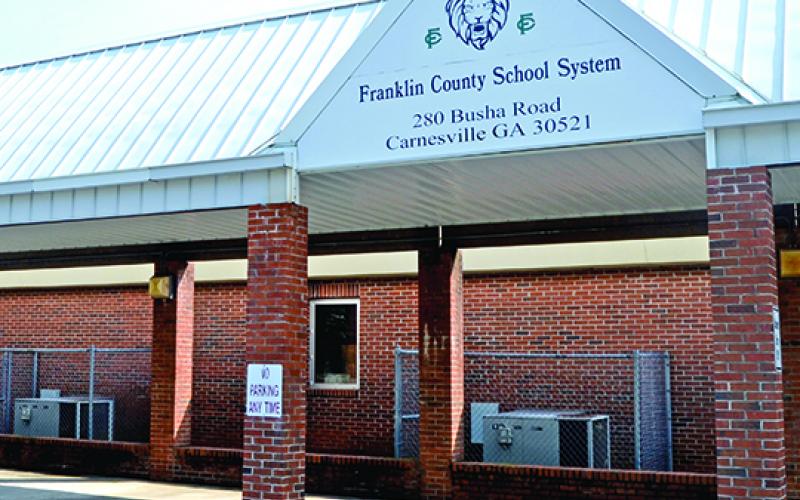The Franklin County School System is facing a 14 percent cut in its state funding for the upcoming fiscal year.
CARNESVILLE – The Franklin County School System is facing a 14 percent cut in its state funding for the upcoming fiscal year due to the loss of revenue by the state due to the coronavirus.
Franklin County Schools Superintendent Chris Forrer informed the board of education Thursday that the cut would mean a $3-$4 million decrease to the system’s funding.
“The pessimist complains about the wind. The optimist expects it to change. The leader adjusts the sails,” Forrer said as he introduced the budget decrease. “This is going to hurt. It’s going to hurt a lot. We receive 60 percent of our funding from the state.”
On May 1, State School Superintendent Richard Wood and local school superintendents received a memorandum from General Assembly budget writers and the state’s Office of Planning and Budget director stating that every state agency to prepare an fiscal year 2021 budget that includes a 14 percent reduction from their fiscal year 2020 original base.
This cut includes the formula funding for local school systems.
Forrer told the board that the first step in dealing with the budget cuts was to finish staffing, which would include additional cuts and transfer 20 teachers to different positions.
Forrer told the board the system has saved more than $2 million through the attrition of 41 faculty and staff positions over the school year, along with the non-renewal of the contracts of nine teachers.
When asked why the contracts of the teachers were not renewed, Forrer said it was due to the budget deficit.
“The non-renewal of these contracts would not be considered a reduction in force because they were non-tenured teachers and we just didn’t renew their contracts,” Forrer said.
The superintendent said he will meet with each school to explain the revenue shortfall and the system’s options.
“Our options are operational cuts to substitutes, bus routes and etc., freeze step increases, cut/reduce local supplement, furlough days, work adjustment days, additional reduction in force (RIF) and any additional suggestions from the board,” he said.
Forrer also said the school system saves more money with work adjustment than it does with furlough days and there are plans to create a survey for input.
“We won’t know how bad the cuts are until the Legislature reconvenes in June,” Forrer said. “We won’t receive state allocation until late June. We won’t be able to prepare a budget and have budget hearings by July 1 so we are asking that the board pass a spending resolution so we can keep the lights on.”
Forrer went on to say there was no other reason he was recommending the spending resolution and that every school system in the state would be doing the same.
A balanced budget will most likely be presented to the board in late July.
“We are going to prepare for the cuts the best that we can,” Forrer said. “Regardless of what we do, we are going to do what’s best for students.”
This fiscal year, the system was facing a budget deficit of more than $1 million.
The school system will receive a one-time allocation through the CARES Act from the federal government.
The state of Georgia received a total of $457,169,852 for kindergarten through twelfth grade.
Of that amount, Franklin County is receiving more than $834,000.
“The state took a 10 percent cut of the allocation,” Forrer said. “We are going to use the funds in three areas. We are going to use some of the funds to extend our meal distribution for five weeks so that we can continue to feed students during the summer. We are going to purchase masks and gloves to keep our people safe and the majority of the funds are going to be used to plug in to offset the budget cuts.”
The funds could have also been used to support at-risk student populations, distance/remote learning, mental and physical health, supplemental learning and professional development.
During the webinar to inform superintendents about the CARES ACT, they learned that Woods is strongly committed to the funds being awarded to districts as quickly as possible so they can address pressing needs and conduct long-term planning, making it as seamless as possible for districts to utilize these funds, funds being used to fill gaps in connectivity, food security, learning opportunities and non-academic supports with an emphasis on meeting the needs of Georgia’s most struggling students and the state Department of Education is going to collect and report on how districts draw down and spend their funding across the CARES ACT categories.

